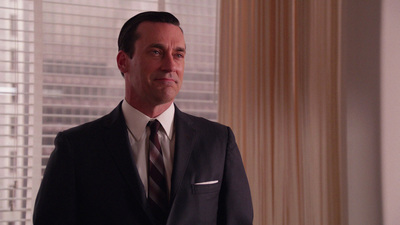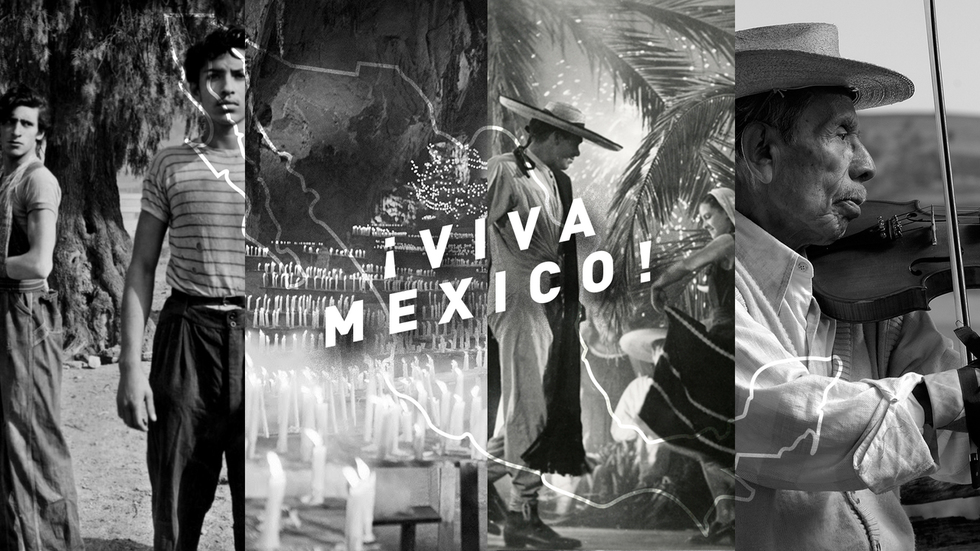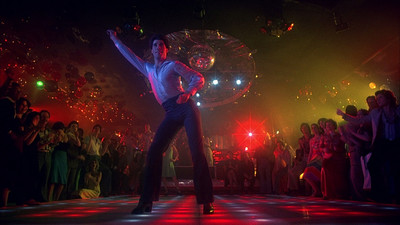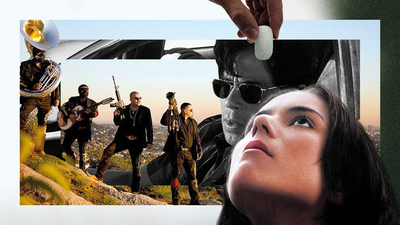
BY ANA YAMEL RODRIGUEZ-CUERVO |
¡Viva Mexico! — 10 Great Mexican Films You've Never Heard of to Celebrate Mexican Independence Day

Since the Golden Age of Mexican Cinema (1935 – 1969), Mexico has seen a resurgence in the last decade, with repeatedly acclaimed films by the “Three Amigos”: Alfonso Cuarón, Alejandro Gonzales Iñárritu and Guillermo del Toro. By now, we are all well-familiar with the brilliance of Y Tu Mamá También, Amores Perros, and Pan's Labyrinth, and rightly so. But there is much more to Mexican cinema that remains unknown outside of Mexico. So today, on the 205th celebration of the Mexican Independence — or, as we call it in Mexico, “El Grito” (i.e. "The Scream") — we want to celebrate our neighbor country with ten great Mexican films you might not know exist and that will have you screaming, ¡Viva Mexico!

1. La Perla (The Pearl), 1947
Dir. Emilio “Indio” Fernandez
Directed by Emilio “Indio” Fernandez, legend of the Golden Era, the film is based on the novella of John Steinbeck, who also co-wrote the screenplay. A story of primitive power, it follows Kino a poor Mexican who finds himself a magnificent pearl worth thousands changing his life and of his family, but as what first seemed a blessing now seems a curse as he has to face the thieves who covet the pearl. The characterization at times can seem outdated, but the photography is exceptional and powerful presenting Mexican folklore at its best. (It will have every expat missing home and everyone who has never been booking their first trip to Mexico!) It is no surprise that the Library of Congress selected it for preservation in the United States National Film Registry. The film also won the Golden Lion for Best Director and a Golden Globe for its photography.

2.Los Olvidados (The Young and the Damned), 1950
Dir. Luis Buñuel
Thomas More once said, "First we make thieves and then we punish them," which might as well be the premise for one of Buñuel’s masterpieces, a Best Director winner at Cannes 1951, and one of Mexico’s greatest films of all time. The film tells the gut-wrenching story of poverty and despair among “The Olvidados” (i.e. "The Forgotten"), the destitute children living in the slums of Mexico City, robbed of their innocence fighting for their daily survival. Ahead of its time, it speaks of a social problem that is rarely talked about and shamefully rings true to this day. It’s social realism at its best, in the vein and caliber of Bicycle Thieves, combined with Buñuel’s surreal elements and the photography of Figueroa (held by UNESCO as “Memory of the World”), making this a must see for any true cinephile.

3. Macario, 1960
Dir. Roberto Gavaldón
The first Mexican film to ever be nominated for an Academy Award is set in the beautiful colonial city of Taxco, during the celebrations of the Day of the Dead. Macario, a poor indigenous man in a constant state of hunger, encounters “La Muerte” (Death) who makes him a gift that changes his life and of his family for ever. By means of the yet again powerful photography of Figueroa, this supernatural film transports you to the celebrations of the beautifully eerie and colorful Mexican traditions of the Day of the Dead.

4.Los Caifanes, 1966
Dir. Juan Ibañez
Part of the experimental Mexican cinema movement, the film speaks out on the elitism and nepotism of Mexican society that is sadly still very accurate to this day. In the film it is exemplified by Paloma and Javier, a rich aristocratic couple who in need of some intimate privacy enter an unknown car belonging to an urban “questionable” gang who call themselves “The Caifanes”. This leads them to join the gang in an unexpected night of cabarets, midnight tacos, harmless pranks and eye opening social truths.

5.El Castillo de la Pureza (The Castle of Purity), 1973
Dir. Arturo Ripstein
Directed by the legendary Mexican filmmaker Arturo Ripstein, an unsettling family drama based on a true story about a man who isolates his family in his home for 18 years in hopes that he can keep them pure and uncontaminated from perverse society. The film plays on the themes of repressed sexuality that can drive to madness and even to twisted desires, reflective of a conservative catholic and repressed Mexican society of the time.

6. Cronos, 1994
Dir. Guillermo del Toro
Yes... I know… One of the Three Amigos. But, to its defense, Cronos is a lesser-known and extremely underrated unconventional vampire film which tells the tale of an antique dealer who comes into possession with Cronos, a 400 year-old scarab that when it latches on to him it gives him youth and eternal life, but also gives him an unquenchable thirst for blood. Made with low budget and pre-CGI, it really just is a bloody great horror film!

7. Temporada de Patos (Duck Season), 2004
Dir. Fernando Eimcbke
Different from most Mexican films which have a tendency towards social injustice themes, Temporada de Patos is nothing of the sort, as it refreshingly and unpretentiously tells the story of two teenage boys hanging out on a trivial Sunday afternoon who in the encounter of a lonely pizza delivery man and a needy neighbor learn lessons about love, loneliness and the disenchantments of adult life. Unintentionally, it is a great film to watch on a slow Sunday.

8. El Violin, 2005
Dir. Francisco Vargas
Plutarco, played by Angel Tavira (winner of Best Male Performance — Un Certain Regard at 2006 Cannes), is an elderly violinist who finds himself in the midst of a guerrilla warfare aiding the rebel army by smuggling arms in his instruments. It’s a poetic realist film that depicts the sad reality of centuries of oppression of the indigenous people of Mexico and Latin America.

9. Silent Light, 2007
Dir. Carlos Reygadas Barguin
The film opens with a seven-minute-long tracking shot of the sunrise, which could be interpreted by some as borderline pretentious, but nonetheless it’s mesmerizing and sets the tone for the rest of the unhurried and visually stunning film. Silent Light takes place in the rural state of Chihuahua in the strict Mennonite community where Johan, a married man finds himself in a love triangle that threatens his respectable place in the conservative community. Shot with non-actors in Mennonite Communities in Mexico, with the dialogue in Plattdeutsch, this is Mexican filmmaking at its most unique and unconventional.

10. La jaula de oro (The Golden Dream), 2013
Dir. Diego Quemada-Diez
With the current international immigration crisis and the constant controversial debate on the Mexico-US border policy, La jaula de oro (The Golden Dream) is a strongly poetic, must-see road movie that follows three Latin American teenagers as they search for a better life while dangerously journeying across the Mexican border into America. In the style of Ken Loach (Quemada was a camera assistant on three of his films), it’s superbly acted by its three non-actor leads. The film proves to be a subtle yet harshly powerful drama that will stay with you for days.

